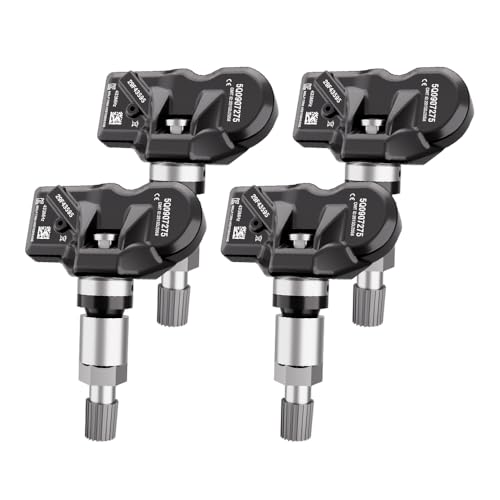As an Audi enthusiast, I’ve often experienced the frustration of being told to “do not exceed 4000 rpm audi” while driving. It’s not just an arbitrary limitation; there are several underlying issues that can trigger this warning. From engine overheating to transmission problems, I’ve seen how various factors can impact performance. I’ve also come across faulty sensors and ignition system malfunctions that can lead to such restrictions. In this article, I’ll delve into the common causes behind this RPM limitation and what it means for Audi owners like me.
- Build the Iconic Estate Car: Fully buildable 1:32 scale Audi Avant RS2 loaded with realistic…
- Customize Your Ride: Includes a custom decal sheet and 2 sets of wheel covers to transform your…
- Exclusive Metal Car & Metal Signature Plate: Features a matching 1:64 scale metal car and signature…
- Authentic Details: Features 4 opening doors and double exhaust pipes for maximum authenticity.
- Compatible With Other Brands: Pieces combine with all building sets by Mattel Brick Shop and other…
- 🚕 High-quality materials: metal part of the high zinc alloy material, the entire surface after…
- 🚕 Fashionable appearance:The iron part of the keychain is zincized and looks shiny, the black…
- 🚕Easy to use: Just easily install and remove your car key chain, you can use the horseshoe buckle…
- 🚕 WISE GIFT: This practical and good-looking car keychain will be a gift for your husband/wife,…
- 🚕 After-sales service: If you have any questions, please contact us, we will reply you within 24…
- 【OE PART NUMBER】: 2N0907251, 5Q0907275, 5Q0907275B, 9A790727502, 2N0907275A, 314818, 5Q0907275F,…
- 【FITMENT/COMPATIBILITY-1】: 2012-2024 Audi A3, 2012-2023 Audi A4, 2015-2022 Audi A4 Avant,…
- 【FITMENT/COMPATIBILITY-2】: 2016-2023 Audi SQ7, 2020-2024 Audi SQ8, 2014-2023 Audi TT, 2016-2024…
- 【FITMENT/COMPATIBILITY-3】: 2014-2024 Porsche Cayenne, 2016-2024 Porsche Cayman, 2017-2021…
- 【PRE-PROGRAMMED】: Pre-programming DOES NOT mean that the sensor will automatically match your…
- 🚲 HIGH QUALITY: This is a set of 4 tire valve stem covers made of aluminum alloy, they also help…
- 🚕 SAFETY FEATURES: These stem caps are a great way to keep your tires in good shape. They are…
- 🚌 Stylish Design: Uniquely designed to fit your style and look great on your tires Adds a stylish…
- 🛵 WIDE COMPATIBILITY: Tire Stem Caps for Cars, SUVs, Bicycles & Bicycles, Trucks, Motorcycles |…
- 🚙 Simple installation: Simple screw-in thread design, easy to tighten or remove
- 🚲 HIGH QUALITY: This is a set of 4 tire valve stem covers made of aluminum alloy, they also help…
- 🚕 SAFETY FEATURES: These stem caps are a great way to keep your tires in good shape. They are…
- 🚌 Stylish Design: Uniquely designed to fit your style and look great on your tires Adds a stylish…
- 🛵 WIDE COMPATIBILITY: Tire Stem Caps for Cars, SUVs, Bicycles & Bicycles, Trucks, Motorcycles |…
- 🚙 Simple installation: Simple screw-in thread design, easy to tighten or remove
Engine Overheating Issues
I’ve noticed that engine overheating issues can really impact my driving experience. It’s crucial to understand the common causes behind these problems to avoid further complications. Let’s dive into the specifics, starting with engine cooling system failures and thermostat malfunction symptoms.
Engine Cooling System Failures
Engine cooling system failures can leave me stranded if I don’t keep an eye on the signs. I’ve learned that a leaking radiator can cause serious issues if not addressed quickly. When the coolant level drops, my engine’s temperature can rise rapidly. I’ve also noticed that a faulty water pump can lead to overheating problems. Regular maintenance helps me catch these issues before they escalate.
Thermostat Malfunction Symptoms
Thermostat malfunction symptoms can make it difficult for me to gauge my engine’s temperature accurately. I often find that the temperature gauge fluctuates unexpectedly, which adds to my worries about overheating. Sometimes, I notice steam rising from the engine bay, making me question if the thermostat’s stuck closed. If the engine cools down too quickly, it leaves me wondering if the thermostat is opening at all. With these issues in mind, I can’t help but consider how they might be linked to potential transmission problems.
Transmission Problems
I’ve noticed that transmission problems can often arise unexpectedly in Audi vehicles. It’s frustrating when I can’t exceed 4000 RPM due to these issues. Let’s dive into the common causes behind these transmission troubles.
Transmission Fluid Issues
Transmission fluid issues can lead to severe performance problems, and I’ve found that regular checks can prevent many of these complications. I’ve seen how low fluid levels can cause slipping and overheating, making it difficult to drive smoothly. Sometimes, I notice that dirty fluid can create a lack of responsiveness in the transmission system. I’ve learned that ignoring these signs can result in more significant damage down the line. This often brings me to consider the state of worn transmission components as a contributing factor.
Worn Transmission Components
Worn transmission components can lead to significant performance issues, and it’s something I always keep an eye on. I’ve encountered situations where the gears just don’t engage properly anymore. It’s alarming how quickly I can feel the difference in acceleration. When components start to wear out, I know it’s time for a thorough inspection. I can’t afford to ignore these signs, as they can lead to more extensive damage down the line.
Faulty Sensors
Faulty sensors can really limit the performance of my Audi, preventing it from exceeding 4000 rpm. I’ve noticed that when the engine management system gets inaccurate readings, it affects my acceleration. It’s frustrating to see the tachometer stuck, even when I’m pressing the pedal down. I’ve had to get the sensors checked multiple times to troubleshoot this issue. If it’s not the sensors, then I suspect there might be some fuel delivery constraints at play.
Fuel Delivery Constraints
I’ve noticed that fuel delivery constraints can significantly impact engine performance. When certain components falter, it often leads to restrictions that prevent exceeding 4000 RPM. Let’s take a closer look at some common causes behind these limitations.
Fuel Pump Limitations
Fuel pump limitations often result in inadequate pressure, which can prevent the engine from operating efficiently. I’ve experienced moments when my Audi just wouldn’t rev beyond a certain point. It’s frustrating to feel that loss of power while driving. I know that a failing fuel pump can restrict fuel flow, leading to these RPM issues. It’s clear that addressing fuel pump concerns is crucial for optimal performance.
Fuel Injector Issues
Sometimes, problems with fuel injectors can lead to poor engine performance and hesitation during acceleration. I’ve experienced situations where clogged injectors restricted fuel flow, causing the engine to struggle. It’s frustrating when I can’t push my Audi beyond that 4000 RPM limit. I’ve also found that faulty injectors can create uneven fuel distribution, affecting overall power. When I notice these symptoms, it’s clear that addressing injector issues is crucial for restoring performance.
Fuel Filter Blockages
Clogged fuel filters can really hinder my engine’s ability to perform at its best. I often find that when the fuel filter gets blocked, my Audi struggles to reach higher RPMs. It’s frustrating to feel the power loss during acceleration, especially when I’m trying to merge onto the highway. I’ve learned the hard way that regular maintenance is key to preventing these issues. Replacing the fuel filter is a small task that makes a big difference in performance.
Ignition System Malfunctions
I’ve noticed that ignition system malfunctions can really hold back a vehicle’s performance. It’s frustrating when my Audi won’t exceed 4000 RPM due to these issues. Let’s take a closer look at some common causes.
Misfiring Spark Plugs
Misfiring spark plugs can lead to a rough engine performance, and it’s a problem I’ve encountered more than once. I’ve felt the hesitation during acceleration, and it’s definitely unsettling. When they start to fail, I usually notice a drop in power and efficiency. I’ve learned that replacing them can make a world of difference. It’s always a relief when my Audi runs smoothly again.
Faulty Ignition Coils
Faulty ignition coils can lead to significant power loss, making it difficult for my car to perform optimally. I’ve experienced moments where the engine stutters, and I can’t push past that frustrating RPM limit. It’s almost like my Audi is holding back, not allowing me to unleash its full potential. I know that replacing these coils can make a world of difference in performance. Now, let’s dive into the wiring issues overview that can also contribute to these problems.
Wiring Issues Overview
Wiring issues can create a lot of headaches for me, especially when they disrupt the electrical signals needed for the ignition system to function properly. I’ve found that damaged or frayed wires can lead to inconsistent signals that affect performance. Sometimes, a loose connection can cause the engine to misfire, making it impossible to rev beyond 4000 RPM. I’ve had to check for corrosion on connectors, too, since that can create resistance in the circuit. It’s always a relief when I can track down and fix these wiring problems, getting my Audi back to its optimal performance.
Turbocharger Failures
I’ve noticed that turbocharger failures can significantly impact vehicle performance, especially in Audi models. It’s essential to recognize the signs early to prevent further damage. Let’s dive into the key points about turbocharger function, signs of failure, common issues, and maintenance tips.
Turbocharger Function and Purpose
The purpose of a turbocharger is to increase engine efficiency by forcing more air into the combustion chamber, and I find it fascinating how this technology enhances performance. It allows for a smaller engine to produce more power, which is a game changer in modern automotive design. I love how it can improve fuel efficiency while delivering a thrilling driving experience. The sound of a spooling turbocharger is music to my ears, signaling that my car is ready to unleash its potential. It’s amazing to think about the engineering behind it and how it transforms ordinary vehicles into extraordinary machines.
Signs of Turbo Failure
Experiencing a decrease in power or unusual noises from the engine often signals turbo failure. I’ve felt the loss of acceleration when I push the pedal, and it’s concerning. I’ve also noticed a distinct whistling or grinding sound that wasn’t there before. When the check engine light comes on, I can’t help but worry about the turbo. If I find any oil leaks around the turbo area, I know it’s time to take action.
Common Turbocharger Issues
Common turbocharger issues often lead to decreased power and increased fuel consumption, and I’ve had to address these problems in my own vehicles. I’ve experienced issues like oil leaks and boost pressure drops that really affected performance. It’s frustrating when the turbo whines or creates excessive smoke, signaling something’s wrong. Even small problems can escalate quickly if they’re not caught in time. That’s why I believe in staying proactive with preventative maintenance tips.
Preventative Maintenance Tips
Preventative maintenance tips are crucial for extending the life of my turbocharger and ensuring optimal performance. I make sure to check the oil levels regularly to keep everything lubricated. I also pay attention to any unusual noises that might indicate a problem. Keeping an eye on the air filter helps prevent dirt from entering the system. Now, I need to shift my focus to potential electrical system anomalies that could also affect my vehicle’s performance.
Electrical System Anomalies
I’ve noticed that electrical system anomalies can often lead to frustrating performance issues in Audi vehicles. It’s surprising how something as simple as battery voltage can impact engine behavior. Faulty wiring connections can also play a significant role in restricting RPMs.
Battery Voltage Issues
Battery voltage issues can really throw a wrench in my Audi’s performance, making it hard to start or causing unexpected shutdowns. I’ve had days where the engine just wouldn’t turn over, and I knew the battery was the culprit. It’s frustrating to see the dashboard lights flicker, signaling that something’s off. I’ve learned to keep an eye on the voltage levels, especially during cold weather. If it’s not the battery, I often suspect faulty wiring connections might be contributing to the problem.
Faulty Wiring Connections
Faulty wiring connections can really mess with my Audi’s performance, and it’s something I always keep an eye on. I’ve had instances where a loose wire caused my engine to hesitate and not rev past 4000 RPM. It’s frustrating to think that something so small can lead to such significant performance issues. I often check the connectors and harnesses to ensure everything’s secure and in good condition. If I’m not careful, these wiring problems could easily be overshadowed by software and ECU glitches.
Software and ECU Glitches
Software and ECU glitches can really throw off my Audi’s performance, making it hard to exceed 4000 rpm. I’ve noticed that sometimes the engine feels restricted, like it’s hitting a wall. It’s frustrating when I want to push the car, but the system holds me back. I’ve had to get the software updated a few times to resolve these issues. Each time, it feels like a breath of fresh air once it’s fixed.
Frequently Asked Questions
What are the long-term effects of driving an audi vehicle consistently above 4000 rpm?
If I consistently drive my Audi above 4000 RPM, I’ve noticed it can lead to significant wear and tear on the engine components over time. Engine overheating and reduced fuel efficiency are concerns I can’t ignore, as they might result in costly repairs down the line. I’ve also read that pushing the engine like this can negatively impact its longevity and performance. Ultimately, I believe it’s better to drive within the recommended limits to ensure my vehicle stays in good shape for years to come.
How can i tell if my audi is experiencing performance issues related to rpm limits?
I can usually tell if my Audi is experiencing performance issues related to RPM limits by paying attention to any unusual sounds or vibrations while driving. If I notice a significant loss of power or a delay in acceleration, that’s a red flag for me. Additionally, I’ll check the dashboard for warning lights, as they can indicate underlying problems. If I’m still unsure, I’ll consider taking it to a mechanic for a thorough diagnostic.
Are there specific audi models more prone to exceeding the 4000 rpm limit?
I haven’t noticed any specific Audi models that are more prone to exceeding the 4000 rpm limit. From what I’ve seen, it often varies based on the vehicle’s condition and maintenance history rather than the model itself. I’ve heard that some performance-oriented models might have a higher tendency to reach those limits, but it’s really about how well the car’s been taken care of. If I’m experiencing issues, I usually just check the owner’s manual or consult a mechanic for advice.
Conclusion
In summary, understanding the various factors that can limit RPMs in Audi vehicles is crucial for any owner. By staying ahead of maintenance, I can prevent issues related to engine overheating, transmission problems, and ignition system malfunctions. It’s also important to keep an eye on turbocharger performance and ensure that software updates are applied regularly. Taking these steps not only enhances performance but also prolongs the lifespan of my vehicle. Ultimately, being proactive will save me from costly repairs and ensure a smoother driving experience.
If you’re interested in exploring more about vehicle specifications and features, I highly recommend checking out this informative page on the Acura RDX’s seating capacity. You can learn what to expect from the interior space and comfort by visiting how many seats acura rdx. It’s a great resource for anyone considering this stylish SUV!
Earnings Disclaimer:
Some links on this page are affiliate links, meaning we may earn a commission if you make a purchase through them—at no extra cost to you. This helps support our independent research and content creation.
Last update on 2026-02-02 / Affiliate links / Images from Amazon Product Advertising API




